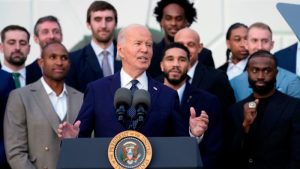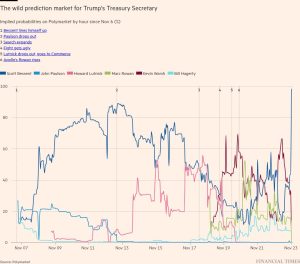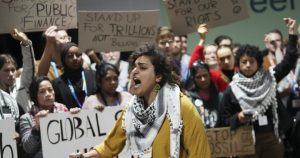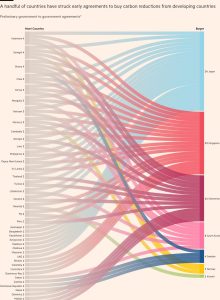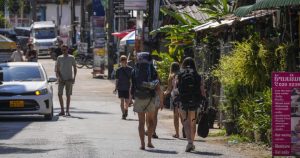The gang Canada claims is connected to Indian officials

This article is an on-site version of our FirstFT newsletter. Subscribers can sign up to our Asia, Europe/Africa or Americas edition to receive the newsletter every weekday. Explore all of our newsletters here
In today’s newsletter:
-
The gang at the centre of the Canada-India dispute
-
Beijing calls on Pakistan to protect Chinese workers
-
Ishiba’s election gamble in Japan
Good morning. We have a must-read story today on the gang that Canada claims is connected to Indian officials — and the murder of Sikh activist Hardeep Singh Nijjar.
When Canadian police expelled six Indian diplomats on Monday in the dispute over Nijjar’s killing, they dropped another bombshell: they claimed representatives of the Indian state were linked with the gang of one of the country’s most notorious criminals, Lawrence Bishnoi.
The 31-year-old Punjabi has spent the past decade in jail, facing multiple criminal charges. Most recently imprisoned in Prime Minister Narendra Modi’s home state of Gujarat, he has been accused by police in Punjab, Mumbai and elsewhere of continuing to plot extortion, murder, and other crimes from behind bars.
Brigitte Gauvin, a Royal Canadian Mounted Police assistant commissioner, said “organised crime elements” were being used against Sikh Canadians including Nijjar, who campaigned for an independent state, or “Khalistan”, in the Punjab region, and was shot dead last year.
She mentioned the Bishnoi gang by name, saying: “We believe that that group is connected to agents of India.”
The allegation, which India has not directly responded to, has compounded an escalating diplomatic crisis and stirred disquiet among the country’s western partners. John Reed and Jyotsna Singh in New Delhi have the full story.
Here’s what else I’m keeping tabs on today:
-
Economic data: New Zealand reports third-quarter CPI inflation data.
-
Monetary policy: Central banks in Thailand, the Philippines and Indonesia announce their interest rate decisions.
-
Hong Kong: Chief Executive John Lee delivers the annual policy address.
Five more top stories
1. China has called on Pakistan to protect Chinese workers after a resurgence in militant violence that has targeted some of Beijing’s $60bn of investments in the country. Two Chinese engineers were killed this month in a bombing by ethnic separatists, just days before Chinese Premier Li Qiang arrived in Islamabad for a bilateral visit.
2. Australia plans to ban “dynamic pricing” amid rising anger from fans faced with soaring prices as they try to buy in-demand tickets for concerts and sporting events. Fans were particularly outraged last month when some tickets to see punk band Green Day were sold at more than three times their face value.
3. The US has told Israel it needs to take “urgent and sustained actions” to improve the dire humanitarian situation in Gaza or military aid from Washington could be at risk. In a joint letter sent to top Israeli officials on Sunday, US defence secretary Lloyd Austin and secretary of state Antony Blinken outlined a series of measures the Biden administration expects Israel to take.
4. LVMH reported an unexpected fall in third quarter sales yesterday, as the world’s largest luxury group was hit by a pullback in spending by Chinese consumers and warned of an “uncertain economic and geopolitical environment”. It is the first time the division, seen as a bellwether for the luxury industry, has recorded falling sales since 2020 amid the Covid pandemic.
5. North Korea blew up parts of two inter-Korean roads yesterday, Seoul said, as tensions rise on the divided peninsula. The symbolic detonations, the first of their kind, follow an announcement by the North Korean military last week that it would sever road and rail links to the south. Watch the footage of the explosions.
The Big Read

Parents and children unhappy with traditional education are turning to online alternatives after the pandemic opened the door to new ways of learning. But the rising popularity of home-schooling has caught the attention of education experts, who warn of concerns about safety, inequality and the human rights implications it raises.
We’re also reading and watching . . .
-
Chinese economy: The country’s economic ills are curable, writes Martin Wolf, but policymakers have made things worse by resorting to temporary palliatives.
-
🎥 Uber interview: Chief executive Dara Khosrowshahi talks to FT editor Roula Khalaf about turning a profit, competing with Amazon, and Elon Musk’s robotaxis.
-
Sperm donor tech bros: Genetic largesse from some of Silicon Valley’s elite appears to be a mix of narcissism, altruism and dreams of immortality, writes Elaine Moore.
Chart of the day
Japan has begun campaigning for a snap general election on October 27 that threatens to pummel the ruling Liberal Democratic party. While the LDP is still likely to secure a majority, it may emerge substantially weakened as voters pass judgment on a slush-fund scandal and the state of the economy.
Take a break from the news
While there is no precedent for what a female president of the US wears, Kamala Harris has refined her own style, as seen on the digital cover of US Vogue, blending the authority of a suit with a touch of femininity — a clever take on power dressing.

Additional contributions from Gordon Smith and Camille De Guzman
#gang #Canada #claims #connected #Indian #officials

